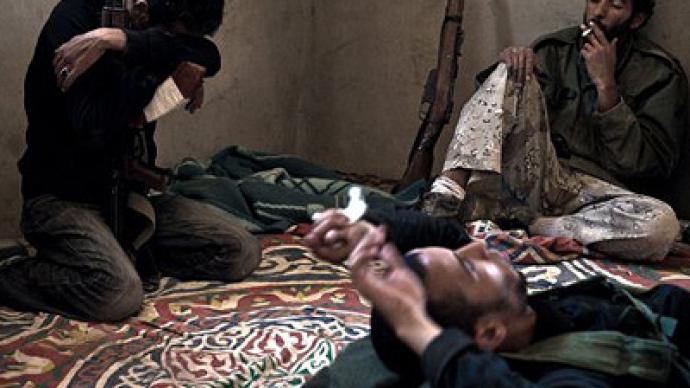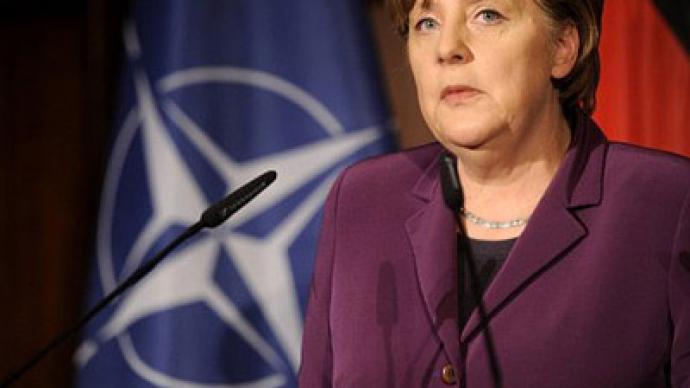Germany is offering a 100-million-euro loan to support the Libyan rebel movement, the German Foreign Ministry announced on Sunday. Author Jean Bricmont says it is nothing more than a way for Berlin to intervene into Libya’s affairs.
“This is a very sneaky way for Germany to intervene in the internal affairs of Libya,” said Bricmont, author of the book “Humanitarian Imperialism” and a professor at the Université Catholique de Louvain.Bricmont says there are signs of desperation from NATO, as the alliance has been bombing Libya for months and still has not ousted Gaddafi’s regime.NATO was expecting the Libyans to rise against Colonel Muammar Gaddafi, but it did not happen. The demonstrations in Tripoli show that people there are angry with NATO, he claimed.“The population, at least in Tripoli, is quite determined to fight for Gaddafi,” he said.There is no internal revolution across the country, he stated. NATO needs to realize that they are intervening into a civil war, which is totally contradictive to the principles of the UN and UN resolution 1973, he added.Bricmont claims that Germany is trying to pursue two policies at the same time – on the one hand, agreeing with the allies, and on the other, refusing to get too involved in the conflict.“It doesn’t seem to be a consistent policy,” he said.German Foreign Minister Guido Westerwelle said the loans could be paid back with Gaddafi's frozen assets. Once the UN Security Council has unfrozen them, the loan will be paid back from Gaddafi’s wallet.Bricmont underlined that the UN resolutions do not allow for taking money from Libya and giving it to the rebels.He insists that the move will undermine the credibility of the Western banking system.Last month Germany announced it was recognizing the rebels' National Transitional Council as Libya's legitimate government.
Christoph Hoerstel, a government consultant in Germany, says it is far from clear what the money is being used for – or, he added, the legality of transferring the funds to the rebels.“In a way, it is totally illegal,” Hoerstel said. “You can’t just take the money away from the government and give it to rebels. If it’s the future policy, the situation will be very tough.”



